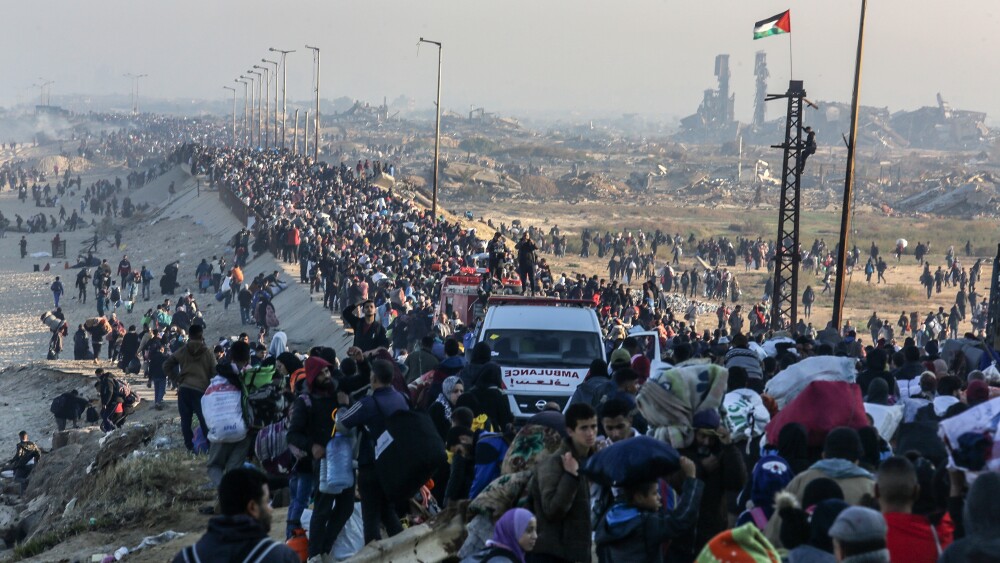RAFAH, Gaza Strip — Miles inside of Gaza, there are no sounds of war.
It certainly looks like a war zone, however. Almost no buildings are left standing in Rafah, and what was a city of almost 200,000 two years ago is now a sandy wasteland of broken concrete, twisted metal and packs of feral dogs sniffing hungrily around the ruins.
But here, the frequent explosions and buzzing of drones that have pervaded the enclave since the Hamas attacks on October 7, 2023, seem to be in the past.
Judging by its operations, the Israel Defense Forces believes it has total control over the area. Civilian sedans and pickup trucks drive along the Philadelphi Corridor on the border with Egypt, stopping at military bases in what was once the Tel Sultan neighborhood.
It is so quiet that one can hear the waves lapping up against the Mediterranean shore dozens of meters away, beyond the UAE-funded black pipeline pumping desalinated water from Egypt to Gaza.
The placidity is broken not by gunshots but the sounds of construction equipment. compactors flatten the sand and dump trucks sullenly lug dirt and rocks out of a massive rectangular enclosure bounded by sand berms and concrete guard posts.
Read the full article at the Times of Israel.








![“We see them test our troops. We see them carrying out attacks every week… [Hamas] injured and killed soldiers since the ceasefire began,” IDF Lt. Col. Nadav Shoshani told The Post at a military outpost in the central Gaza Strip on Thursday.](https://cdn-mef.meforum.org/dims4/default/126c66a/2147483647/strip/true/crop/2704x1520+0+140/resize/500x281!/brightness/16x0/quality/90/?url=https%3A%2F%2Fk2-prod-mef.s3.us-east-1.amazonaws.com%2Fbrightspot%2F3d%2F29%2Fd1c530464a578792da895f74a56f%2Fidf-soldier-silhouette-in-gaza.jpg)